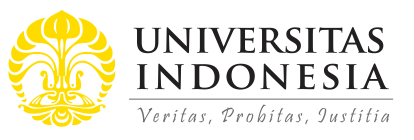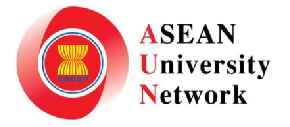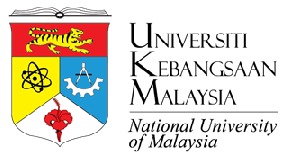
Abstract
Community leaders must understand their role in controlling COVID-19, such as monitoring misleading information and providing socialization, education, protection, monitoring, and evaluation activities in the community, due to the numerous limitations of local governments in managing large populations during this crisis. This study aimed to describe the role of Yogyakarta community leaders in increasing community engagement in managing the Covid-19 pandemic. This study uses a quantitative method with a cross-sectional approach, and the study sample includes all community leaders as many as 31 people at the levels of neighborhood and hamlet. The data analysis process uses frequency distribution values. Results showed that most community leaders had not been maximal in implementing the following COVID-19 prevention activities in the community: educating the community regarding isolation and self-quarantine, eliminating the negative stigma in suspected, probable, and confirmed cases of COVID-19 in medical personnel, and inviting the community to participate in providing hand-washing facilities in public places and facilities to assist underprivileged/elderly people who live alone. Leaders have also not been maximal in planning the needs of people who carry out self-isolation and appointing volunteers and community representatives to prepare and distribute food, personal hygiene equipment, and logistics. Most of the leaders only use billboards as a means of education. Some supporting activities have not been maximized, namely removing the stigma/anxiety in the presence of people who work as medical personnel. The role of the leader is not optimal in providing supporting infrastructure in implementing health protocols, and removal of the social stigma must be improved through risk communication assistance and empowerment.
References
Ahern, S., & Loh, E. (2020). Leadership during the COVID-19 pandemic: building and sustaining trust in times of uncertainty. BMJ Leader, leader-2020. http://dx.doi.org/10.1136/leader-2020-000271
Anderson, R. M., Heesterbeek, H., Klinkenberg, D., & Hollingsworth, T.D. (2020). How will Country-Based Mitigation Measures Influence the Course of the COVID-19 Epidemic? The Lancet, 395(10228), 931-934. https://doi.org/10.1016/S0140-6736(20)30567-5
Anngarina, P. T. (2020, April 8). Leadership and Communication during the COVID-19 Crisis. Kompas. https://www.kompas.com/tren/read/2020/04/08/142643965/kepemimpinan-dan-komunikasi-di-masa-krisis-covid-19?page=all
APA. (2020). How Leaders can Maximize Trust and Minimize Stress during the COVID-19 Pandemic. American Psychological Association. https://www.apa.org/news/apa/2020/covid-19-leadership
Arni, M. (2015). Organizational Communication. PT Bumi Aksara.
Betton V, Borschmann R, Docherty M, Coleman, S, Brown, M, Henderson, C. (2015). The Role of Social Media in Reducing Stigma and Discrimination. The British Journal of Psychiatry, 206(6), 443-444. http://doi.org/10.1192/bjp.bp.114.152835
Bhattacharya, P., Banerjee, D., & Rao, T. S. (2020). The “Untold” Side of COVID-19: Social Stigma and its Consequences in India. Indian Journal of Psychological Medicine, 42(4), 382-386. https://doi.org/10.1177/0253717620935578
Blacburn, Christine, C., & Ruyle, L. (2020). How Leadership in Various Countries has Affected COVID-19 Response Effectiveness. The Conversation. https://theconversation.com/how-leadership-in-various-countries-has-affected-covid-19-response-effectiveness-138692
Caringal-Go, J. F., Teng-Calleja, M., Franco, E. P., Manaois, J. O., & Zantua, R. M. S. (2021). Crisis leadership from the perspective of employees during the COVID-19 pandemic. Leadership & Organization Development Journal, 42(4), 630-643. https://doi.org/10.1108/LODJ-07-2020-0284
Carter, S. E., O’Reilly, M., Frith-Powell, J., Umar Kargbo, A., Byrne, D., & Niederberger, E. (2017). Treatment Seeking and Ebola Community Care Centers in Sierra Leone: A Qualitative Study. Journal of Health Communication, 22(1), 66-71. https://doi.org/10.1080/10810730.2016.1216204
Cheung, E. (2020, March 31). Indonesia Declares Public Health Emergency Over Coronavirus Pandemic. Cable News Network. https://edition.cnn.com/world/live-news/coronavirus-pandemic-03-31-20/h_9d84bdd8b2671de839f5d60a415d275b
Chopra, K. K., & Arora, V. K. (2020). COVID-19 and Social Stigma: Role of Scientific Community. Indian Journal of Tuberculosis, 67(3), 284. https://doi.org/10.1016/j.ijtb.2020.07.012
Cinelli, M., Quattrociocchi, W., Galeazzi, A., Valensise, C. M., Brugnoli, E., Schmidt, A. L., ... & Scala, A. (2020). The COVID-19 Social Media Infodemic. Scientific Repots, 10(16598), 1-10. https://doi.org/10.1038/s41598-020-7
Daerah Istimewa Yogyakarta Government. (2020). Map of the Distribution of COVID-19 cases in D.I. Yogyakarta. https://corona.jogjaprov.go.id/map-covid-19-diy
Dirani, K. M., Abadi, M., Alizadeh, A., Barhate, B., Garza, R. C., Gunasekara, N., ... & Majzun, Z. (2020). Leadership Competencies and the Essential Role of Human Resource Development in Times of Crisis: A Response to COVID-19 Pandemic. Human Resource Development International, 23(4), 380-394. https://doi.org/10.1080/13678868.2020.1780078
Djalante, R., Lassa, J., Setiamarga, D., Sudjatma, A., Indrawan, M., Haryanto, B., ... & Warsilah, H. (2020). Review and Analysis of Current Responses to COVID-19 in Indonesia: Period of January to March 2020. Progress in Disaster Science, 6(100091), 1-9. https://doi.org/10.1016/j.pdisas.2020.100091
Europe, A. P. (2020). COVID-19 and Human Rights Concerns for Older Persons. Policy Coordinator on Human Rights & Non-Discrimination (ed). https://www.age-platform.eu/sites/default/files/Human_rights_concerns_on_implications_of_COVID-19_to_older_persons_Final_18May2020.pdf
Farrington, M., & Fal Dutra Santos, R. (2020). Community Engagement during COVID-19: A Guide for Community Facing Staff. United Kingdom of Great Britain and Northern Ireland. https://reliefweb.int/report/world/community-engagement-during-covid-19-guide-community-facing-staff
Fisher, D. (2020). Why Singapore’s Coronavirus Response Worked – and What We can All Learn. The Conversation. https://theconversation.com/why-singapores-coronavirus-response-worked-and-what-we-can-all-learn-134024
Forbes. (2020). 7 leadership traits for the post-COVID-19 workplace. https://www.forbes.com/sites/danabrownlee/2020/05/07/7-leadership-traits-for-the-post-covid-19-workplace/?sh=330771ac2d4d
Forster, B. B., Patlas, M. N., & Lexa, F. J. (2020). Crisis Leadership During and Following COVID-19. Canadian Association of Radiologists’ Journal, 71(4), 421-422. https://doi.org/10.1177/0846537120926752
Gaventa, J., & Barrett, G. (2012). Mapping the Outcomes of Citizen Engagement. World Development, 40(12), 2399-2410. https://doi.org/10.1016/j.worlddev.2012.05.014
Gillespie, A. M., Obregon, R., El Asawi, R., Richey, C., Manoncourt, E., Joshi, K., ... & Quereshi, S. (2016). Social Mobilization and Community Engagement Central to the Ebola Response in West Africa: Lessons for Future Public Health Emergencies. Global Health Science and Practice, 4(4), 626-646. https://doi.org/10.9745/GHSP-D-16-00226
Humas Kemensetneg. (2020). Central and Regional Integrated Steps to Handle the Spread of the Corona Virus. Local Government DIY. https://www.setneg.go.id/baca/index/langkah_terpadu_pusat_dan_daerah_tangani_penyebaran_virus_korona
Kaul, V., Shah, V. H., & El-Serag, H. (2020). Leadership during Crisis: Lessons and Applications from the COVID-19 Pandemic. Gastroenterology, 159(3), 809-812. https://doi.org/10.1053/j.gastro.2020.04.076
Luo, L., Liu, D., Liao, X. L., Wu, X. B., Jing, Q. L., Zheng, J. Z., ... & Mao, C. (2020). Modes of contact and risk of transmission in COVID-19 among close contacts. MedRxiv. https://doi.org/10.1101/2020.03.24.20042606
Maak, T., & Pless, N. M. (2006a). Responsible Leadership: A Relational Approach. In Responsible Leadership. London: University of St. Gallen, Routledge. https://www.alexandria.unisg.ch/publications/33668
Maak, T., & Pless, N. M. (2006b). Responsible Leadership in a Stakeholder Society - A Relational Perspective. Journal of Business Ethics, 66(1), 99-115. https://doi.org/10.1007/s10551-006-9047-z
Mehta, M., Sarvaiya, H., & Chandani, A. (2020). Community Engagement through Responsible Leadership in Managing Pandemic: Insight from India using Netnography. International Journal of Sociology and Social Policy, 725079. https://doi.org/10.1108/IJSSP-06-2020-0214
Menon, K. U., & Goh, K. T. (2005). Transparency and Trust: Risk Communications and the Singapore Experience in Managing SARS. In Journal of Communication Management, 9(4), 375-383. https://doi.org/10.1108/13632540510621614
Michaels, P. J., López, M., Rüsch, N., & Corrigan, P. W. (2017). Constructs and Concepts Comprising the Stigma of Mental Illness. Psychology, Society & Education, 4(2), 183. https://doi.org/10.25115/psye.v4i2.490
Ministry of Health of Indonesia. (2020a). Why is there Stigma? In guide to Address Stigma associated with COVID-19. Ministry of Health & Family Welfare Government of India. https://www.who.int/docs/default-source/coronaviruse/covid19-stigma-guide.pdf
Ministry of Health of Indonesia. (2020b). Guidelines for Preventing the Spread of COVID-19 for the Community. Direktorat Promosi Kesehatan dan Pemberdayaan Masyarakat. https://promkes.kemkes.go.id/panduan-pencegahan-penularan-covid-19-untuk-masyarakat
Ministry of Health of Indonesia. (2020c). Guidelines for Community Empowerment in COVID-19 in RT/RW/Village. Direktorat Pemberdayaan Kesehatan dan Pemberdayaan Masyarakat. Kementerian Kesehatan. https://covid19.kemkes.go.id/protokol-covid-19/pedoman-pemberdayaan-masyarakat-dalam-pencegahan-covid-19-di-rt-rw-desa/
Ministry of Health of Indonesia. (2020d). Guidelines for Prevention and Control of Coronavirus Disease (COVID-19) Revision 5. Direktorat Surveilans dan Karantina Kesehatan. https://covid19.go.id/storage/app/media/Protokol/2020/Juli/REV-05_Pedoman_P2_COVID-19_13_Juli_2020.pdf
Misnaniarti, M., Hidayat, B., Pujiyanto, P., Nadjib, M., Thabrany, H., Junadi, P., … & Yulaswati, V. (2018). Availability of Health Facilities and Personnel to Support Universal Coverage of National Health Insurance. Jurnal Penelitian dan Pengembangan Pelayanan Kesehatan, 1(1), 6-16. https://doi.org/10.22435/jpppk.v1i1.425
Nasiwan, N. (2012). Islamic Cultural Transformation in Kota Gede, Yogyakarta. INFORMASI, 38(2). https://doi.org/10.21831/informasi.v2i2.4450
OECD. (2020). COVID-19: Protecting People and Societies. Tackling Coronavirus Contributing to a Global Effort. https://read.oecd-ilibrary.org/view/?ref=126_126985-nv145m3l96&title=COVID-19-Protecting-people-and-societies&_ga=2.263580300.1808499119.1638757931-1565343565.1627352318
Paat, Y. (2020, May 18). Every Village has an Independent Isolation Place. Berita Satu. https://www.beritasatu.com/megapolitan/634135/anies-pastikan-setiap-kelurahan-punya-tempat-isolasi-mandiri
Pascawati N. A., & Satoto, T.B.T. (2020). Public Knowledge, Attitudes and Practices towards COVID-19. International Journal of Public Health Science, 9(4), 292-302. http://doi.org/10.11591/ijphs.v9i4.20539
PEMDA DIY. (2020). Collection of Public Documents on the Development of COVID-19 in DIY. Local Government, DIY. https://corona.jogjaprov.go.id/rilis/dokumen-publik
Ramaci, T., Barattucci, M., Ledda, C., & Rapisarda, V. (2020). Social Stigma during COVID-19 and its impact on HCWs Outcomes. Sustainability, 12(9), 3834. https://doi.org/10.3390/su12093834
Ramsbottom, A., O’Brien, E., Ciotti, L., & Takacs, J. (2018). Enablers and Barriers to Community Engagement in Public Health Emergency Preparedness: A Literature Review. Journal of Community Health, 43(2), 412-420. https://doi.org/10.1007/s10900-017-0415-7
Roudhunah. (2007). Ilmu Komunikasi. Lembaga penelitian UIN Jakarta: UIN Press.
Schiavo, R. (2020). Advocacy, Community Engagement and Cross-Sectoral Collaborations as Key Strategies during COVID-19 Response and Beyond: New Directions for a New Decade. Journal of Communication in Healthcare, 13(1), 1-5. https://doi.org/10.1080/17538068.2020.1762983
Skrip, L. A., Bedson, J., Abramowitz, S., Jalloh, M. B., Bah, S., Jalloh, M. F., ... & Althouse, B. M. (2020). Unmet needs and behaviour during the Ebola response in Sierra Leone: a retrospective, mixed- methods analysis of community feedback from the social mobilization action Consortium. Lancet Planet Health, 4(2), e74–85. https://doi.org/10.1016/S2542-5196(20)30008-5
Soekanto, S. (2000). Sosiologi suatu Pengantar. Raja Grafindo Persada.
Stoller, J. K. (2020). Reflections on leadership in the time of COVID-19. BMJ Leader, 4(1), 1-3. http://dx.doi.org/10.1136/leader-2020-00024
Syaipudin, L. (2020). Role of Mass Communication in the Midst of the COVID-19 Pandemic. Kalijaga, 2(1), 14-34. https://doi.org/10.28944/hudan linnaas.v2i1.388
Tristanto, A. (2020). Mental and Psychosocial Health Support (MHPSS) in Social Services for the Elderly during the COVID-19 Pandemic. Sosio Informa, 6(02), 205-222. https://doi.org/10.33007/inf.v6i2.2348
Tohani, E. (2005). Peran Pemimpin Masyarakat Desa dalam Memberdayakan Kegiatan Belajar Masyarakat. Diskusi, 6(X), 35-47. https://media.neliti.com/media/publications/217869-peran-pemimpin-masyarakat-desa-dalam-mem.pdf
Van Griethuijsen, R. A., van Eijck, M. W., Haste, H., Den Brok, P. J., Skinner, N. C., Mansour, N., ... & BouJaoude, S. (2015). Global Patterns in Students: Views of Science and Interest in Science. Research in Science Education, 45(4), 581-603. https://doi.org/10.1007/s11165-014-9438-6
WHO. (2020a). Leaders Speak Out about their Concerns Regarding Older People in the Context of COVID-19. Geneva: World Health Organization. https://www.who.int/news-room/feature-stories/detail/leaders-speak-out-older-people-covid-19
WHO. (2020b). Maintaining Essential Health Services: Operational Guidance for the COVID-19 Context. Geneva: World Health Organization. https://www.who.int/publications/i/item/WHO-2019-nCoV-essential_health_services-2020.2
WHO. (2020c). Pandemic Fatigue: Reinvigorating the public to prevent COVID-19. Geneva: World Health Organization. https://apps.who.int/iris/bitstream/handle/10665/335820/WHO-EURO-2020-1160-40906-55390-eng.pdf
Worldmeters. (2021). COVID Live-Coronavirus Statistics. California: Company Dadax https://www.worldometers.info/coronavirus/
Recommended Citation
Pascawati, Nur Alvira; Satoto, Tri Baskoro Tunggul; and Alamri, Annisa Rizqa
(2022).
Role of Community Leaders in Managing Covid-19 Pandemic in Indonesia.
ASEAN Journal of Community Engagement, 6(1), 126-151.
Available at: https://doi.org/10.7454/ajce.v6i1.1124
Included in
Community Health and Preventive Medicine Commons, Public Health Education and Promotion Commons







